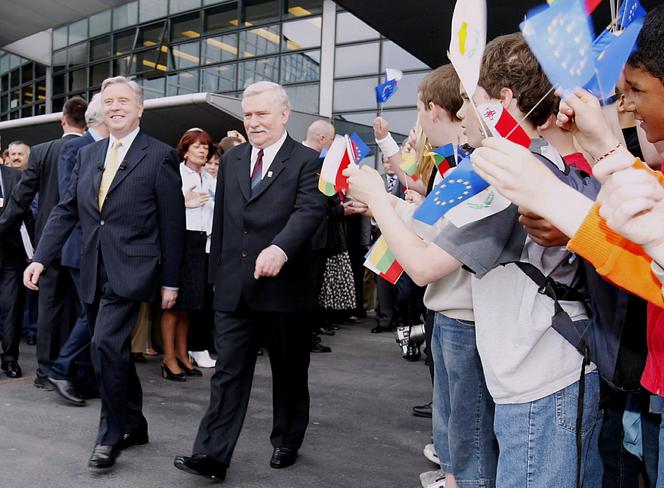


The anniversary went almost unnoticed, so shaken is the continent by the return of war on its soil. Russia's large-scale invasion of Ukraine has been overshadowing one of the European Union's most unexpected and developmental successes: the great enlargement of 2004, which has just celebrated its 20th anniversary. The war that is now dragging on underlines the importance of the event.
On May 1, 2004, 10 countries, including three former Soviet republics and most states of the former "Eastern Bloc," joined the EU club: Poland, Hungary, the Czech Republic, Slovakia, Slovenia, Estonia, Latvia, and Lithuania, as well as Cyprus and Malta, completing a long accession process that began in the aftermath of the Cold War. Romania and Bulgaria followed in 2007. Enthusiasm is real in these countries, while former members have ambivalent feelings.
Supported by the US, this great enlargement consecrated the victory of Western Europe over the defunct Communist regimes formerly under the authority of the now-dismantled Soviet Union. However, it also marked the start of a long and sometimes painful reunification process for the old continent, in the wake of Germany's reunification, as "old" and "new" Europe initially struggled to rediscover each other.
We need only remember the fractures caused by the war in Iraq. In 2003, the countries applying for membership to the European Union – also candidates for NATO – rallied behind the US to overthrow Saddam Hussein, against the advice of France and Germany. "They missed a good opportunity to shut up," said former French president Jacques Chirac, during a European summit in Brussels. "These countries have been not very well behaved and rather reckless of the danger of aligning themselves too rapidly with the American position," said the then-French president.
This remark not only took his entourage by surprise but also had a lasting effect on relations between the "new members" and France, which had long been very reserved about this acceleration of history. Two years later, in 2005, controversy over the "Polish plumber" accused of "social dumping," precipitated victory for the "no" vote in the French referendum on the European constitution. This highlighted both the risks of competition between two European countries with often disparate standards of living, and the spectacular economic catch-up undertaken by these countries.
Twenty years on, the great enlargement has still not been fully digested, even if exchanges between the 27 member states have deepened considerably. Cultural and political differences remain pronounced between "old" and "new" members – qualifiers that have fortunately fallen into disuse – as debates on migration issues have shown over the last 15 years.
You have 45.09% of this article left to read. The rest is for subscribers only.
